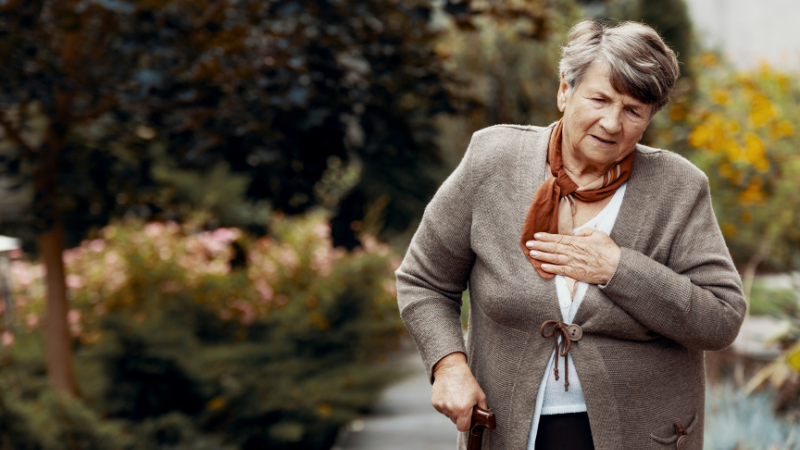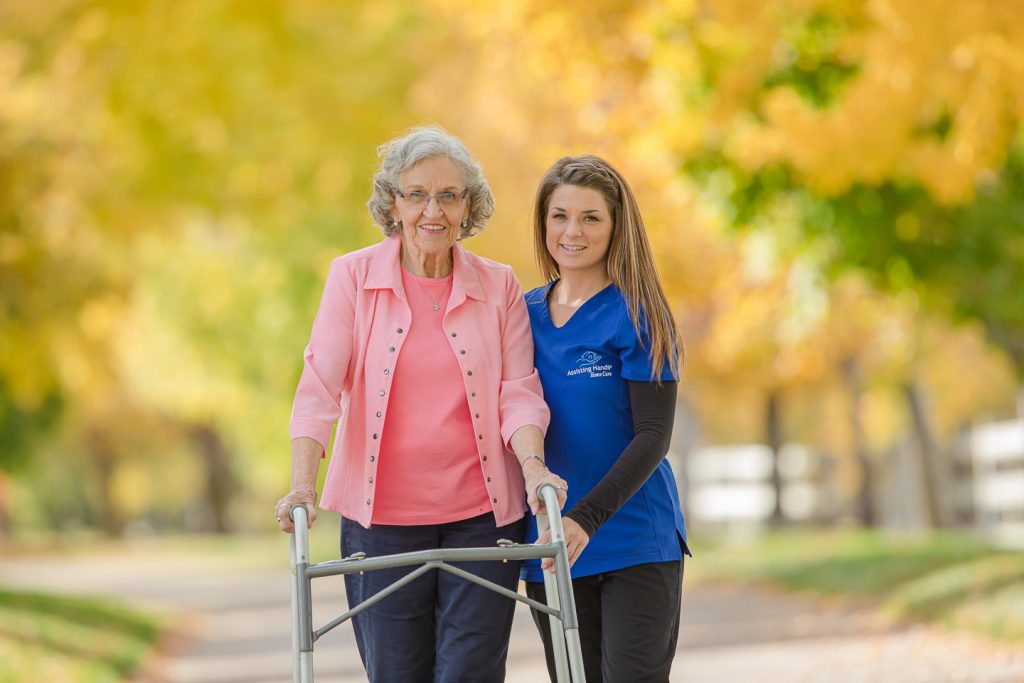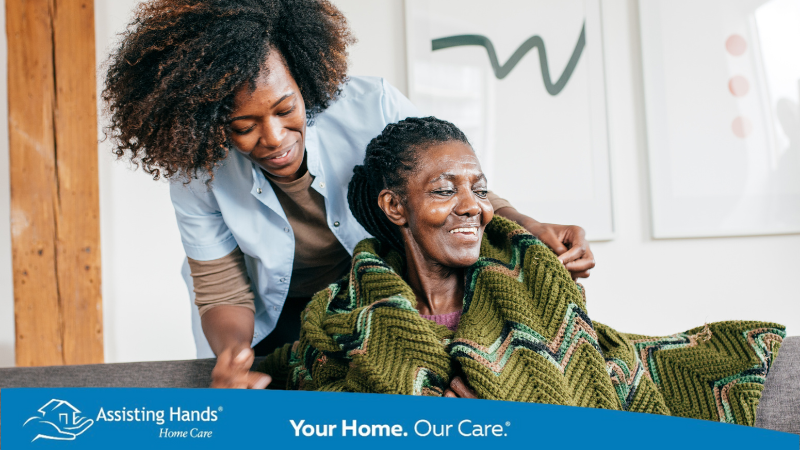
Wheezing is common among seniors, however if it becomes severe and is accompanied by coughing or chest pain, they should see a doctor. There are various causes for wheezing, but the most common causes are extra mucus, or the airway being restricted.
If you notice your loved one wheezing, you should make sure that it is closely monitored and managed if needed. Wheezing can make their life more difficult and unpleasant as they may be unable to complete more strenuous tasks such as climbing stairs or do other social activities with friends and family.
Causes of Wheezing
Wheezing can be caused by aging and weakening of the respiratory system. The muscles in the respiratory system can become weaker which makes breathing harder. If a senior is in pain, their breathing will become shallow and inhaling and exhaling will become difficult. Also, when coughing, they may not clear the mucus from their lungs. These conditions make it easier for seniors to get the flu or pneumonia. Wheezing can become worse with smoking and living in a polluted or damp area. Living with access to fresh air and a clean environment will make their symptoms better.
When a person’s airways are inflamed in any location from the throat to the lungs, the result can be wheezing. The main cause of wheezing is asthma and chronic obstructive pulmonary disease (COPD), which cause narrowing and spasms in the small airways of the lungs. Also, any inflammation of the throat or the larger airways can cause wheezing. Some common causes are infections, allergic reactions, or even a physical obstruction caused by a tumor or an inhaled foreign object. There are also some diseases that can cause wheezing such as asthma, bronchitis, allergies, bronchiectasis, heart failure, gastroesophageal reflux disease (GERD), emphysema etc. In more extreme cases, wheezing can be caused by lung cancer and other lung disorders.
How to Manage Wheezing in Elderly
You should always consult a doctor if you or a loved one are experiencing wheezing. There may be underlying issues that are causing it such as pulmonary embolism and bronchogenic carcinoma. It is crucial to speak to a specialist to ensure a proper diagnosis and treatment. Treatment may include corticosteroids and even anti-anxiety medications. These medications do have side effects that need to be closely monitored by a doctor.
Home Remedies for Treating Wheezing in Elderly
There are various home remedies available for treating wheezing in the elderly. You should always consult your doctor before starting a new regimen in treating wheezing. These remedies are meant to help open the airways, reduce exposure to pollution, and other causes of wheezing.
Here are the home remedies available for treating wheezing:
- Steam inhalation:
Inhaling warm and moist air may help clean sinuses and opening airways.
- Hot drinks:
Hot and warm drinks such as tea may help with loosening up the airways and get rid of congestion. These can be enjoyed with honey which has natural anti-inflammatory powers.
- Breathing exercises:
Doing breathing exercises can help with COPD, bronchitis, allergies, and other diseases that cause wheezing. Some yoga exercises include breathing techniques that may help with wheezing. You can work with your doctor to figure out which breathing exercises are the best to use for your condition.
- Humidifiers:
During the winter, the air is drier, and symptoms of wheezing may worsen. By putting a humidifier in your bedroom, you may help reduce wheezing.
- Air filters:
Polluted, dirty air and allergens can cause wheezing. Therefore, it is important to change the air filter regularly to reduce wheezing and breathing issues by reducing irritants from the air.
- Removing triggers:
If you have an underlying illness such as asthma or allergies, there are triggers that can make it worse such as stress or allergens. You should try to reduce your triggers as much as possible. For example, if you have chronic respiratory conditions and allergies, you may want to take medication to avoid the allergy triggers.
- Medications for allergies:
Those suffering from allergies can experience relief from allergy medications as well as nasal sprays that help with congestion and inflammation which can reduce wheezing.
- Allergy immunotherapy:
This is a process where the immune system is retrained not to react to allergens. Usually, this is done via allergy shots. Sometimes, a few treatments are needed but over time it helps reduce wheezing.
- Bronchodilators:
These are medications that help with relaxing the lungs and preventing the airways from getting narrower. They can help with wheezing caused by COPD and asthma but must be prescribed by a doctor.
- Other various medications:
There are other medications that can help treat wheezing when it is caused by another underlying disease. For example, those with heart issues take blood pressure medicine to prevent further damage to their heart.
How to Prevent Wheezing in the Elderly
Preventing wheezing is simple, and it has to do with lifestyle. Access to clean air and a clean, fresh environment is crucial in preventing wheezing. Also, smoking makes wheezing worse and should be avoided.

Are you or a loved one in need of senior care? Assisting Hands Home Care can help. Our staff is highly trained and offers non-medical home health care to seniors in Fox Point, Franklin, Milwaukee, Lake Geneva, Waukesha, Whitefish Bay, and the surrounding areas in Wisconsin. We will provide a free in-home consultation to assess the needs of your loved one and create an affective home care plan. Call us today at (262) 510-0905 to learn more about our services.















